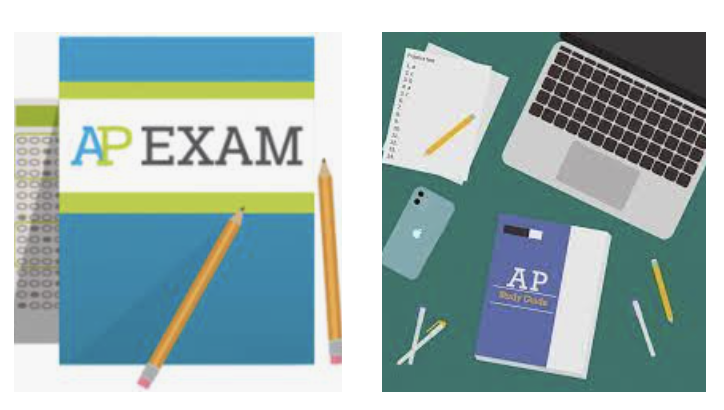By Emmy Ribero
AP tests are fast approaching and are closer than many realize. It is time to crack open those test prep books and get to studying. Some may know exactly how they will study, they may have already bought their test prep book and know the strategy that works best for them. Others may feel lost because they don’t know how to learn the material most effectively and especially because the year has been entirely different from what they are used to.
The first step is to buy the prep book for the test they are taking. These can be found on amazon, Barnes and Noble, or you can buy them online through Amber Prep which is a nonprofit organization that collects and sells prep books in the River Hill area. They have recently worked with Angel’s Network to have a book collection, so they currently have many options for sale, including SAT prep books. You can find all their listings on their website: amberprep.com.
Next, learning what works best for you is crucial to doing well on exams. There are countless online resources that can help you figure out what type of learner you are. There are 7 main types of learners: visual, aural, verbal, physical, logical, social, and solitary learners. It also matters what time of day you can learn, some learn best at night while others learn better in the morning. Knowing what type of learner can take a while to find out, use your experiences in the past to help you. When did you do well on a hard test and what did you do to study that time?
For visual learners, creating infographics, timelines, and mind maps for topics would help. It helps to see information displayed. Simply reading textbooks and highlighting would not be enough for visual learners. Aural learners learn best by hearing information. There are countless youtube videos from college boards or crash courses that cover lessons necessary for exams. Rhymes and mnemonic devices would be very helpful for these learners. They should avoid loud areas when they study and auditory distractions like TV and music. Physical learners need to actively do something when they learn, taking notes, teaching others, and making mnemonic devices is very useful to them. It is also advised that they take frequent breaks and have things like gum and music while they study. Logical learners need to break down information into smaller segments to study. They should look for patterns and connections in all information as well. This can be done by creating mind maps or organizers. Rewriting and reorganizing class notes would be very beneficial to them too. Solitary learners need independence when they learn. They should be in a quiet environment, with minimal distractions. They need to feel in control so they would find making a master guide that they can check off very useful. Social learners learn from others, finding a group of friends to study with would help. They need interaction with peers or teachers to learn the best.
Ms. Casper, a social studies teacher at River Hill, has a lot of tips and tricks for the AP exams. She teaches AP government, which is often a student’s first AP class, so she knows advice for new AP students. “Anything you do is better than doing nothing. Start with a practice test and diagnose yourself from there. What topics or areas did you miss? Was it because you didn’t understand the material, was it because you just didn’t remember it, or did you not understand the question? If it’s the first, get some help from your teacher or look to the College Board videos for a review. If it’s the second, start studying and review the material. If it’s the third, look at some strategies for handling that particular type of question. Don’t be afraid to ask your teachers for some help!” She and some other AP teachers are offering support sessions in preparation for the exam for both first and second semester students. Attending these would also help prepare.
It is also important to not stress yourself out too much about the exam. Staying calm and collected while studying and taking the exam is crucial to doing well on it. Spreading out the work as opposed to cramming would not help your mindset while studying. It is important to get an early start and pace your work to avoid the unnecessary stress and anxiety.

